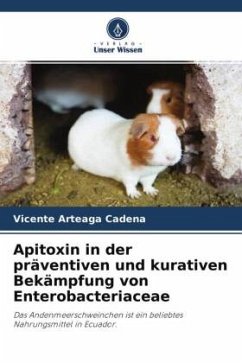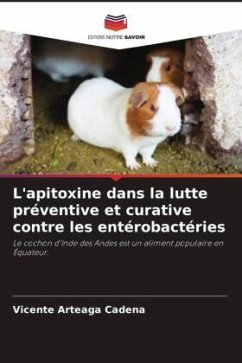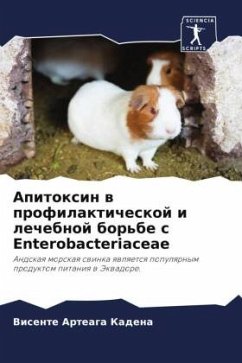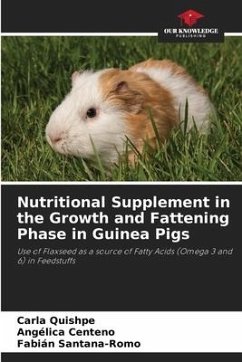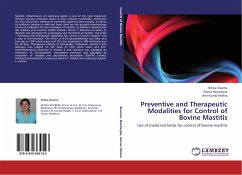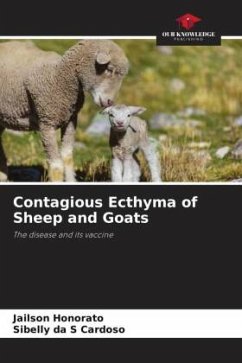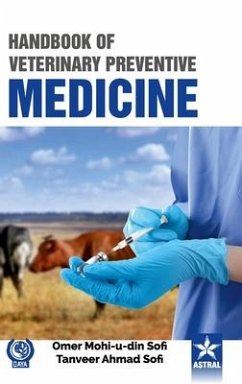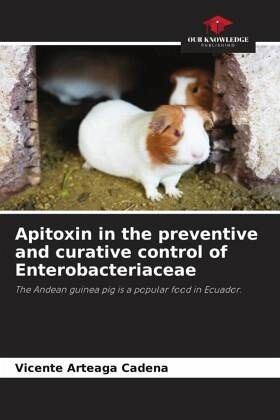
Apitoxin in the preventive and curative control of Enterobacteriaceae
The Andean guinea pig is a popular food in Ecuador.
Versandkostenfrei!
Versandfertig in 6-10 Tagen
29,99 €
inkl. MwSt.

PAYBACK Punkte
15 °P sammeln!
In consideration that guinea pigs (Cavia porellus) produced in Imbabura face the attack of enterobacteria such as: Escherichia coli, Yersinia pseudotuberculosis and Salmonella Typhimurium, the excessive use of antibiotics that derives in the development of bacterial resistance and residual effects in the meat of these animals arises the need to find natural alternatives that control these enteropathogens and is a competitive advantage in production. Guinea pigs clinically diseased by the enteropathogens of interest were identified, samples were taken with rectal swabs and from tissues such as ...
In consideration that guinea pigs (Cavia porellus) produced in Imbabura face the attack of enterobacteria such as: Escherichia coli, Yersinia pseudotuberculosis and Salmonella Typhimurium, the excessive use of antibiotics that derives in the development of bacterial resistance and residual effects in the meat of these animals arises the need to find natural alternatives that control these enteropathogens and is a competitive advantage in production. Guinea pigs clinically diseased by the enteropathogens of interest were identified, samples were taken with rectal swabs and from tissues such as liver, spleen and mesenteric ganglia, for bacterial cultures in selective media. The following enterobacterial strains were isolated, biochemically identified and molecularly identified: Escherichia coli, Yersinia pseudotuberculosis and Salmonella Typhimurium; minimum inhibitory concentrations (MIC) were determined with apitoxin at concentrations of 700, 800 and 900 µg/ml and Tetracycline® (150 µg/m) as antimicrobials for the strains under study. Two groups A and B were organized, each with 75 clinically healthy guinea pigs: 60 for test groups and 15 for absolute controls.



